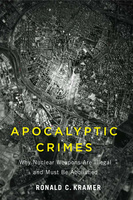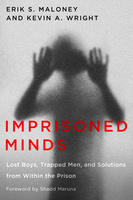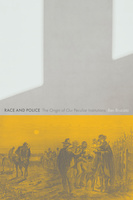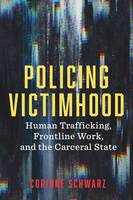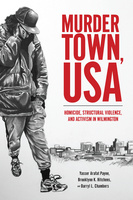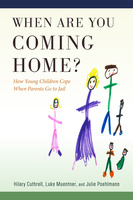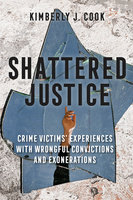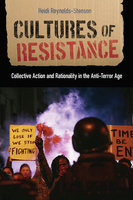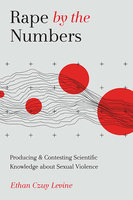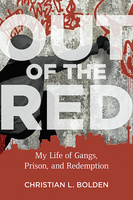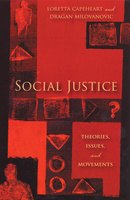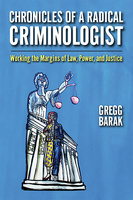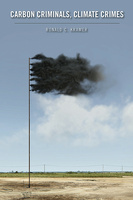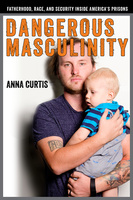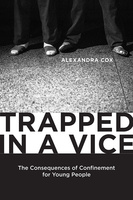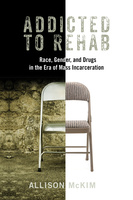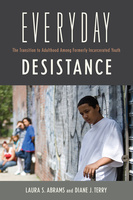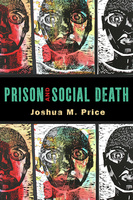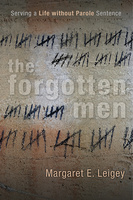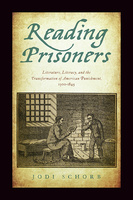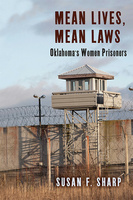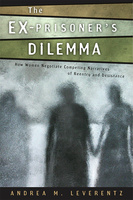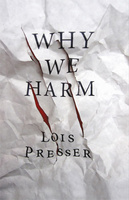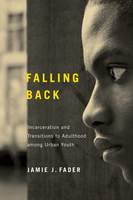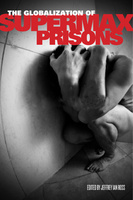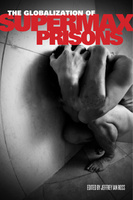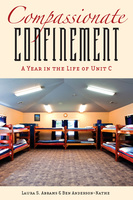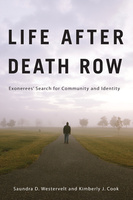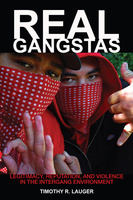American Infanticide
Sexism, Science, and the Politics of Sympathy
Emile Weaver seemed like the perfect college student—a studious, athletic, and popular sorority sister. So why did she kill her newborn baby? American Infanticide answers this question by situating Emile’s tragic crime in a long intellectual and social history that reveals why our legal responses to infanticide are so deeply misguided.
Apocalyptic Crimes
Why Nuclear Weapons Are Illegal and Must Be Abolished
Ronald C. Kramer applies theories from criminology to argue that possession of nuclear weapons is a criminal act and shows how a nuclear apocalypse might be averted, offering a pathway to the abolition of these devastating weapons.
Imprisoned Minds
Lost Boys, Trapped Men, and Solutions from Within the Prison
Imprisoned Minds tells the stories of men in prison that few people ever hear. Six gripping, first-person narratives of unimaginable childhood trauma and neglect set the men on a pathway for prison or death. We finally hear their stories because the author is in prison alongside them—incarcerated for life at the age of 21.
Race and Police
The Origin of Our Peculiar Institutions
Policing Victimhood
Human Trafficking, Frontline Work, and the Carceral State
Murder Town, USA
Homicide, Structural Violence, and Activism in Wilmington
When Are You Coming Home?
How Young Children Cope When Parents Go to Jail
Way Down in the Hole
Race, Intimacy, and the Reproduction of Racial Ideologies in Solitary Confinement
Shattered Justice
Crime Victims' Experiences with Wrongful Convictions and Exonerations
Shattered Justice presents original crime victims’ experiences with violent crime, investigations and trials, and later exonerations in their cases. Cook reveals how homicide victims’ family members and rape survivors describe the painful impact of the primary trauma, the secondary trauma of the investigations and trials, and then the tertiary trauma associated with wrongful convictions and exonerations.
Cultures of Resistance
Collective Action and Rationality in the Anti-Terror Age
Cultures of Resistance brings new insight to a key question: do government efforts to repress social movements effectively repress dissent, or do they spur mobilization? Through analyses of activists’ experiences of repression and resistance, the book uncovers processes that shape how individuals understand the risks of participating in collective action. Reynolds-Stenson demonstrates how individual rationality is collectively constructed.
Rape by the Numbers
Producing and Contesting Scientific Knowledge about Sexual Violence
Out of the Red
My Life of Gangs, Prison, and Redemption
Social Justice
Theories, Issues, and Movements (Revised and Expanded Edition)
Chronicles of a Radical Criminologist
Working the Margins of Law, Power, and Justice
Carbon Criminals, Climate Crimes
Colonialism Is Crime
Dangerous Masculinity
Fatherhood, Race, and Security Inside America's Prisons
Trapped in a Vice
The Consequences of Confinement for Young People
Addicted to Rehab
Race, Gender, and Drugs in the Era of Mass Incarceration
Everyday Desistance
The Transition to Adulthood Among Formerly Incarcerated Youth
When Riot Cops Are Not Enough
The Policing and Repression of Occupy Oakland
Sex Offenders, Stigma, and Social Control
The Methamphetamine Industry in America
Transnational Cartels and Local Entrepreneurs
Police, Power, and the Production of Racial Boundaries
Prison and Social Death
The Forgotten Men
Serving a Life without Parole Sentence
Reading Prisoners
Literature, Literacy, and the Transformation of American Punishment, 1700–1845
Mean Lives, Mean Laws
Oklahoma's Women Prisoners
The Methamphetamine Industry in America
Transnational Cartels and Local Entrepreneurs
The Ex-Prisoner's Dilemma
How Women Negotiate Competing Narratives of Reentry and Desistance
Tough on Hate?
The Cultural Politics of Hate Crimes
Tough on Hate is the first book to examine the cultural politics of hate crimes both within and beyond the law. Drawing on a wide range of sources, including personal interviews, unarchived documents, television news broadcasts, legislative debates, and presidential speeches, the book challenges readers to reconsider their understanding of hate crimes and raises startling questions about the trajectory of civil and minority rights.
Tough on Hate?
The Cultural Politics of Hate Crimes
Tough on Hate is the first book to examine the cultural politics of hate crimes both within and beyond the law. Drawing on a wide range of sources, including personal interviews, unarchived documents, television news broadcasts, legislative debates, and presidential speeches, the book challenges readers to reconsider their understanding of hate crimes and raises startling questions about the trajectory of civil and minority rights.
Why We Harm
This timely book scrutinizes accounts of acts as diverse as genocide, environmental degradation, war, torture, terrorism, homicide, rape, and meat-eating in order to develop an original theoretical framework with which to consider harmful actions and their causes. Chapter by chapter, it examines statements made by perpetrators of a wide variety of harmful actions, identifying the logics they share that motivate, legitimize, and sustain them and mapping out strategies for reducing harm.
Falling Back
Incarceration and Transitions to Adulthood among Urban Youth
Falling Back documents the transition to adulthood for young inner-city men of color who have, by the age of eighteen, already been imprisoned. It is based on over three years of ethnographic research with black and Latino males on the cusp of adulthood and incarcerated at a rural reform school. The book portrays the complexities of human decision-making as these men strove to “fall back,” or avoid reoffending and become productive adults.
The Globalization of Supermax Prisons
“Supermax” prisons are typically reserved for convicted political criminals such as terrorists and spies and for other inmates who are considered to pose a serious ongoing threat to the wider community, to the security of correctional institutions, or to the safety of the people within. The Globalization of Supermax Prisons examines why nine prominent advanced industrialized countries have adopted the supermax prototype, paying particular attention to the economic, social, and political processes that have affected each nation.
The Globalization of Supermax Prisons
“Supermax” prisons are typically reserved for convicted political criminals such as terrorists and spies and for other inmates who are considered to pose a serious ongoing threat to the wider community, to the security of correctional institutions, or to the safety of the people within. The Globalization of Supermax Prisons examines why nine prominent advanced industrialized countries have adopted the supermax prototype, paying particular attention to the economic, social, and political processes that have affected each nation.
Compassionate Confinement
A Year in the Life of Unit C
This ethnographic text brings to light the challenges and complexities inherent in the U.S. system of juvenile corrections. Building on over a year of field work at a boys’ residential facility, the authors provide a context for contemporary institutions and highlight some of the system’s most troubling tensions. The book provides narratives, observations, case examples, and recommendations for rehabilitating the system. A detailed appendix on conducting field research is useful for individuals in the social sciences and helping professions.
Women on Ice
Methamphetamine Use among Suburban Women
Women on Ice is the first book to study exclusively the lives of women who use methamphetamine (ice, speed, crystal, shards) and the effects of its use on their families. In-depth interviews with women in the suburban counties of one of the largest metropolitan areas in the U.S. chronicle the details of their initiation into methamphetamine, the turning points into problematic drug use, and, for a few, their escape from lives veering out of control.
Life after Death Row
Exonerees' Search for Community and Identity
Life after Death Row examines the post-incarceration struggles of individuals who have been wrongly convicted of capital crimes, sentenced to death, and subsequently exonerated. Drawing upon research on trauma, recovery, coping, and stigma, the authors weave a nuanced fabric of grief, loss, resilience, hope, despair, and meaning to provide the richest account to date of the struggles faced by people striving to reclaim their lives in contemporary American society after years of wrongful incarceration.
Real Gangstas
Legitimacy, Reputation, and Violence in the Intergang Environment
Real Gangstas relies on the tradition of urban ethnography to provide a unique and intimate look at the lives of street gang members in Indianapolis, IN. For eighteen months, Timothy R. Lauger interviewed and observed a mix of fifty-five gang members, former gang members, and non-gang street offenders, many from the “Down for Whatever Boyz.” Through this research, Lauger is able to understand and explain the reasons for gang membership, including a chaotic family life, poverty, and the need for violent self-assertion in order to foster the creation of a personal identity.


